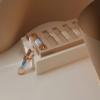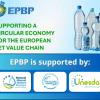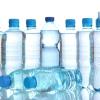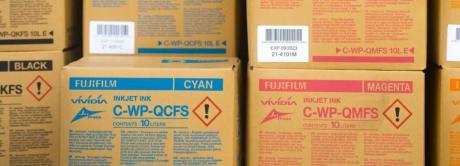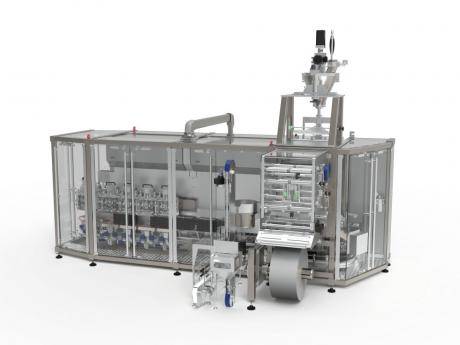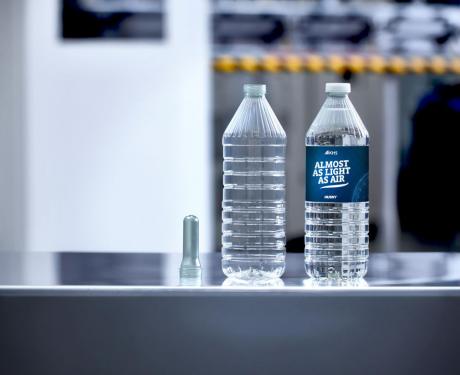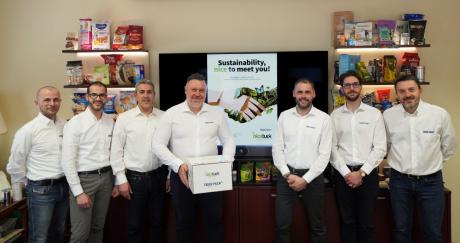Making the right decision when it comes to packaging material is a challenge for manufacturers. Factors such as product protection, machine runnability, environmental friendliness, cost-effectiveness and consumer expectations all need to be reconciled. Top-loading packaging machines (TLM) manufacturer Schubert has been building up comprehensive expertise for several years, which it intends to make increasingly available to its customers in the future.
Cardboard as a sustainable packaging material is trending, indeed, in the European Union more than 70% of collected waste is reprocessed into paper products. There are also significant trends towards sustainability in plastic packaging. Manufacturers are working with thinner materials, higher recycled or biomass content, or refillable packaging and reusable systems. The problem with plastic, however, is that recycling cycles are inadequate. What may seem ecological at first glance can turn out to be a waste problem, depending on how it is disposed of. Packaging solutions made of mono-materials can help as they enable the entire packaging to be fed into a recycling process, the result of which is a pure plastic granulate.
Expertise from packaging machine manufacturer Schubert
The complex correlations between material properties, waste collection and recycling make it difficult for companies to make informed and economically sustainable decisions for a specific packaging material. This is why Schubert is consistently expanding its expertise in the field of materials.
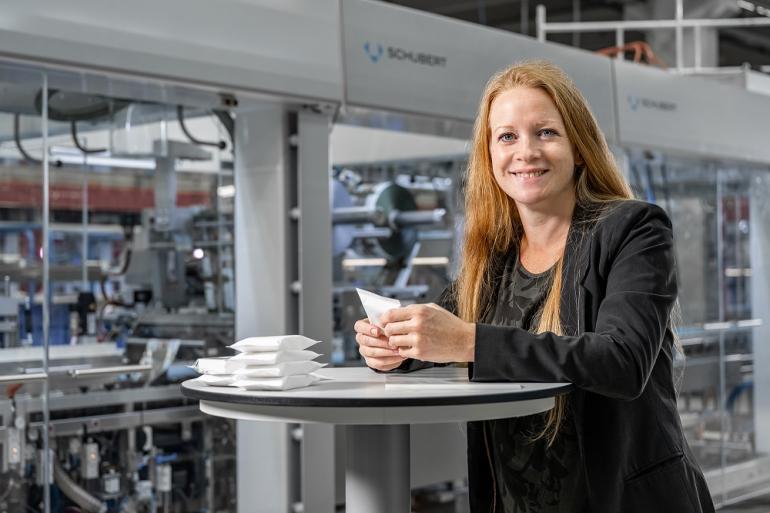
Laura Gascho, plastics engineer in the application technology department at Schubert, explained:
We want to support our customers in the choice of materials just as much as in the design of a packaging machine. A wide variety of packaging materials are collected at Schubert and tested for their machine-suitable properties. If required, the materials can also be examined in detail in the in-house laboratory. This enables the machine manufacturer to show customers samples from its pool of marketable materials and offer comprehensive, independent advice on their selection. This also includes the development of alternative packaging made of cardboard.
Mono-materials for complete recycling loops
Laura Gascho pointed out a key aspect to be considered:
At Schubert, we are not always in favour of eliminating plastic at the expense of durability. Packaging accounts for a mere fraction of a final product’s CO2 footprint, making it all the more important for us to be able to offer our customers truly sustainable solutions in terms of recycling cycles. This ensures that sensitive foodstuffs survive transport undamaged and remain fresh for longer once purchased. Without packaging, the ecological damage would be far greater. Mono-materials are the most important trend for us. With them, complete recycling cycles can be established. This is precisely why the Schubert will support its customers in selecting more ecological packaging in the future, in line with its Mission Blue sustainability strategy.


